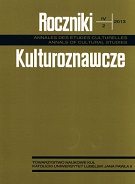Violence, Law and Culture: The Social Construction of US and European Privacy Identities and Transatlantic Counter-Terrorism Cooperation
Violence, Law and Culture: The Social Construction of US and European Privacy Identities and Transatlantic Counter-Terrorism Cooperation
Author(s): Michelle FrasherSubject(s): Cultural Essay, Political Essay, Societal Essay
Published by: Towarzystwo Naukowe KUL & Katolicki Uniwersytet Lubelski Jana Pawła II
Keywords: social constructivism; culture; law; terrorism; privacy; data protection; Europe; United States
Summary/Abstract: Social constructivism, the influence of ideas, historical experience and culture on processes and institutions, explains how US and EU privacy identities—beliefs about the protection of an individuals’ data, have been shaped by historical episodes of violence. As sharing data across borders has become an important component of counter-terrorism (CT) operations, the differences among transatlantic privacy identities will affect cooperation in the “War on Terror.” European experiences with state-led, left-wing, and nationalist terrorism (near enemy threats) during the Second World War and Cold War eras created a cultural consciousness that framed the EU’s privacy identity as a fundamental human right where data ownership is vested in the individual to protect intrusions from the states or private citizens. European counter-terrorism (CT) strategies developed within criminal law, which required officials to take notice of national privacy and data protection protections in their investigations. The US did not encounter political violence during World War II or the Cold War, but was frequently the target of terrorism aboard (far enemy). As a result, US CT relied on military intervention, covert action, and sanctions against states who supported these groups, while allowing covert data collection and surveillance on its citizenry and foreign nationals. The American privacy identity is property based, and protects data in the possession of the holder, no matter what entity this might be, so legislation has selectively regulated data usages. The variances in privacy identities are important to contemporary CT cooperation because information technologies and threats transcend sovereign borders causing national privacy identities, legal systems, and security interests to increasingly overlap and clash. However, as constructivism shows how institutions and procedures have been the result of interactions within societies and among societies, the last decade has shown how transatlantic data sharing has evolved to encompass both US and EU privacy and security values.
Journal: Roczniki Kulturoznawcze
- Issue Year: 4/2013
- Issue No: 2
- Page Range: 73-96
- Page Count: 24
- Language: English

